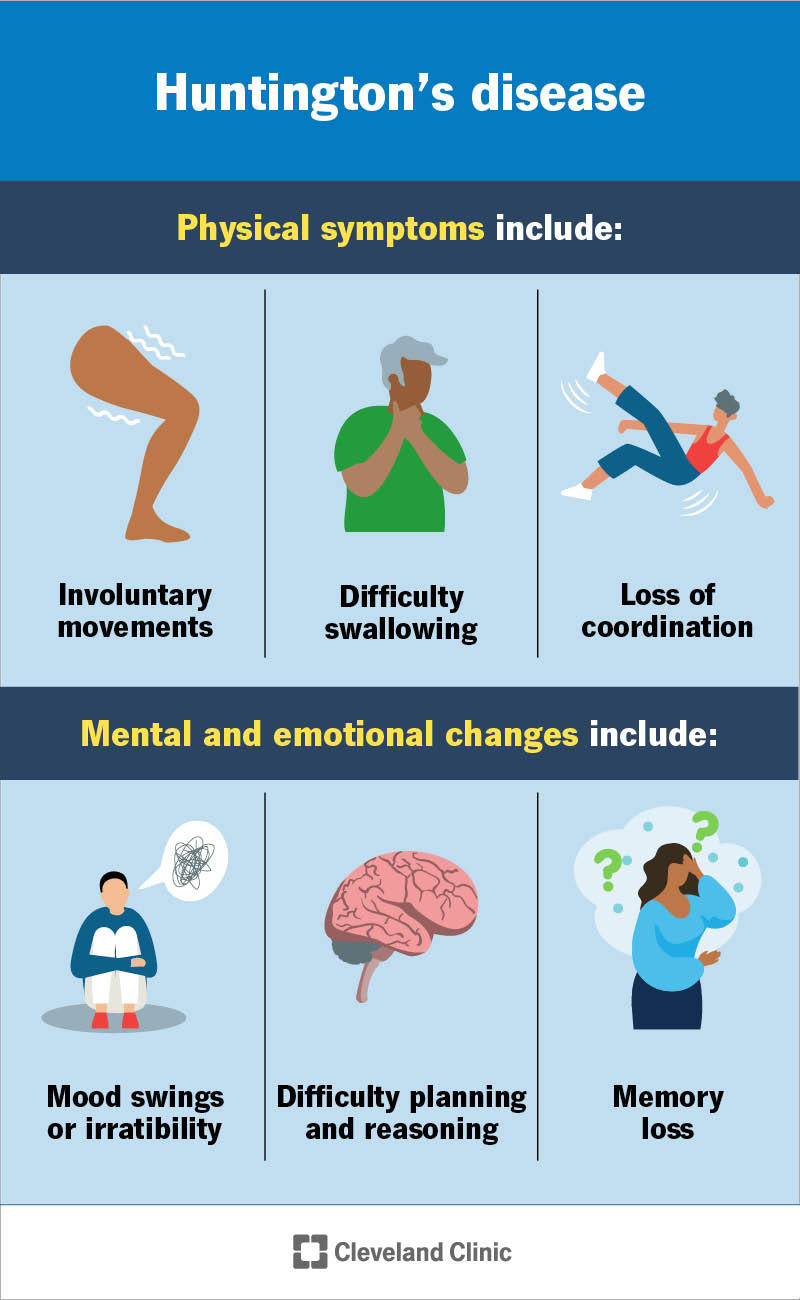|
Symptoms and Causes What are the symptoms of Huntington’s disease? Huntington’s disease affects you both physically and mentally. Physical symptoms include: Physical symptoms may start in small ways — for example, difficulty holding a pen, clumsiness or losing balance — and then get worse over time. In addition, if you have Huntington’s disease, you may develop: Your physical and mental symptoms may not affect your daily life much at first. But over time, these symptoms will make your usual tasks more difficult to do on your own. Advertisement What is Huntington’s disease chorea?One of the first physical symptoms of Huntington’s disease is chorea. Chorea is unintended jerks or twisting movements. Chorea usually affects your hands, fingers and facial muscles first. Later, it also makes your arms, legs and torso move uncontrollably. Chorea can make speaking, eating and walking more difficult. It may affect your ability to perform everyday activities, such as driving, as well. What causes Huntington’s disease?A genetic change (mutation) of the HTT gene causes Huntington’s disease. The HTT gene makes a protein called huntingtin. This protein helps your nerve cells (neurons) function. If you have Huntington’s disease, your DNA doesn’t have all the information needed to make the huntingtin protein. As a result, these proteins grow in an abnormal shape and destroy (instead of help) your neurons. Your neurons die because of this genetic mutation. The destruction of nerve cells happens in the basal ganglia or the region of your brain that regulates your body’s movements. It also affects the brain cortex (surface of your brain) that regulates your thinking, decision-making and memory. Is Huntington’s disease inherited?Yes, you can inherit the genetic change (mutation) that causes Huntington’s disease. You can develop this condition if one of your biological parents carries the genetic change and passes it on to you. This is an autosomal dominant pattern of inheritance. In rare cases, the genetic change happens without any history of the condition in your biological family. What are the risk factors for Huntington’s disease?Anyone can develop Huntington’s disease, but it’s most common if someone in your biological family has the condition. If one of your parents has Huntington’s disease, you have a 50% chance of also developing it. What are the complications of Huntington’s disease?Huntington’s disease is a progressive condition. This means that your symptoms get worse over time. Complications could include worsening symptoms, like: Children diagnosed with juvenile Huntington’s disease may experience seizures. (责任编辑:) |

